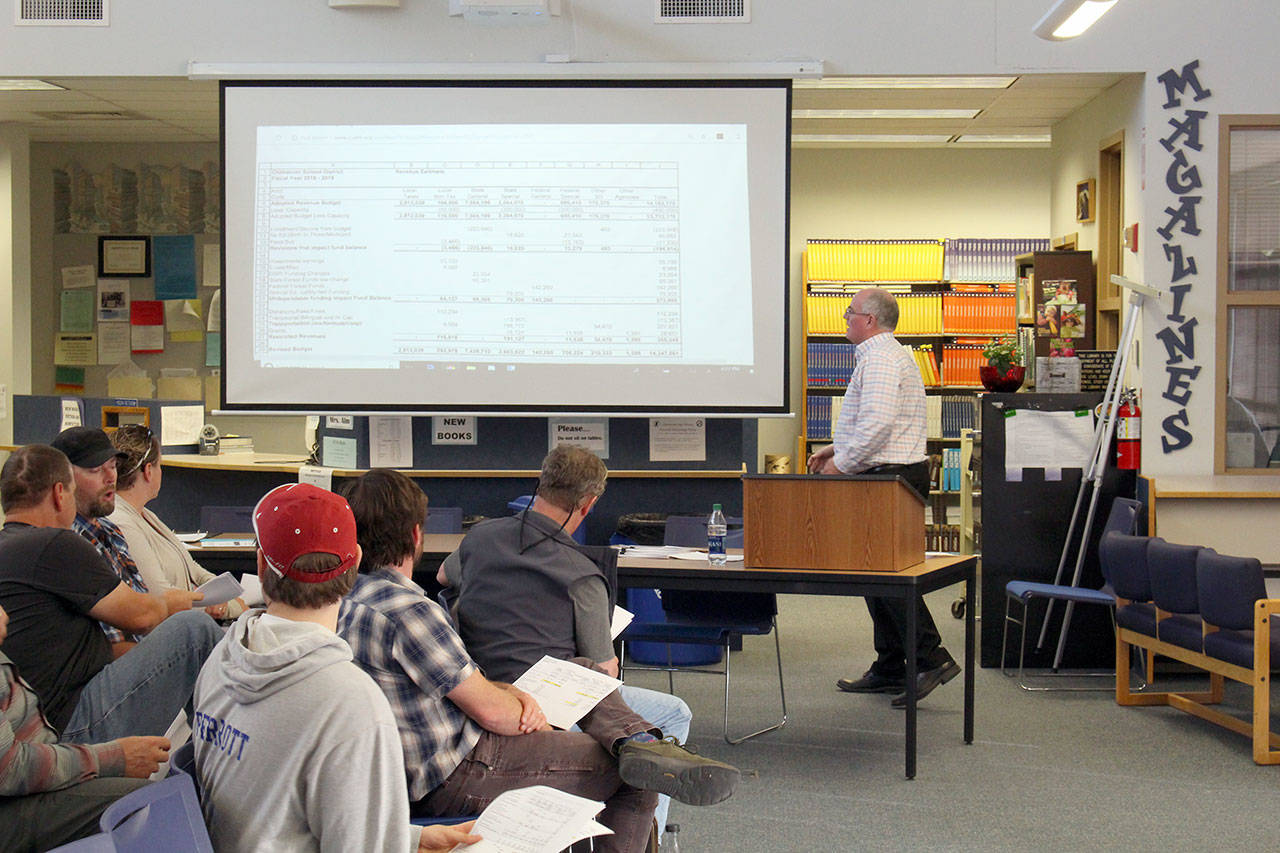CHIMACUM — The Chimacum School Board unanimously approved a 2019-20 budget with a $1 million deficit.
The district will dip into its $2 million reserve fund if needed. Predicted revenue is $13.47 million and planned expenditures are $14.48 million.
A long-term budget prediction shows the district would be more than $3 million in debt in four years.
Board Chair Mike Gould explained during the Wednesday night meeting of the five-member board his reservations about accepting the 2019-20 budget, based on the four-year prediction.
“We already are burning a million of 2 million and we have a policy of stopping at $750,000,” Gould said. “I might be sensitive because this is my last budget for this board but I’m leaving into the sunset and telling the new team good luck with that.
“That’s scary. We’re in the red millions.”
Ideas were proposed to limit the deficit, the main one presented being to in- crease enrollment.
Assistant Superintendent Art Clarke explained a simple way to increase funding.
“How to improve our financials: get more students,” said Assistant Superintendent Art Clarke.
Enrollment decline is the biggest issue when it comes to funding, Clarke said. If seven students were added to each grade level, there would be a notable difference in the state funding the school would receive.
Enrollment in the Chimacum School District was 938.65 full-time equivalents for the 2017-18 school year, according to Clarke.
Only 767 students are predicted to be enrolled for the 2019-20 school year.
Another suggestion was to decrease spending.
“We can control our expenses; we can’t control who shows up and takes classes here,” Gould said. “We can influence, but we can’t control.”
Even with his reservations, Gould said he supports the budget “wholeheartedly.”
In addition to the drop in enrollment, the district also is not receiving as much tax income as a result of the “McCleary fix,” Clarke said.
The McCleary fix was the state Legislature’s compromise for complying with a state Supreme Court order that the state pay for basic education.
The 2012 ruling was known as the McCleary decision, after a group of educators and families filed suit in 2007. Stephanie McCleary of Chimacum was a primary plaintiff.
The McCleary fix capped how much funding a school can receive as a result of local taxes in the community, which has had the bigger impact on the smaller school districts than ones with a high student population, Clarke said.
The deficit may be smaller, due to Safety Net Funding for special education (IEP) students and Secure Rural Schools payments which they receive in the summer after the school year.
Secure Rural Schools payments are given to schools where federal logging occurs, and the funding is never promised, so Clarke does not include it or the Safety Net Funding in the budget.
Superintendent Rick Thompson advocates having an advisory board created from district staff to look for ways to improve the budget for the next years.
Other districts on the North Olympic Peninsula have cited the McCleary fix as they have approved budgets for the next school year that include deficits.
Enrollment is an issue for the four candidates who are seeking to fill Gould’s seat. Gould decided not to run for reelection.
________
Jefferson County reporter Zach Jablonski can be reached at 360-385-2335, ext. 5 or at zjablonski@peninsuladailynews.com.

